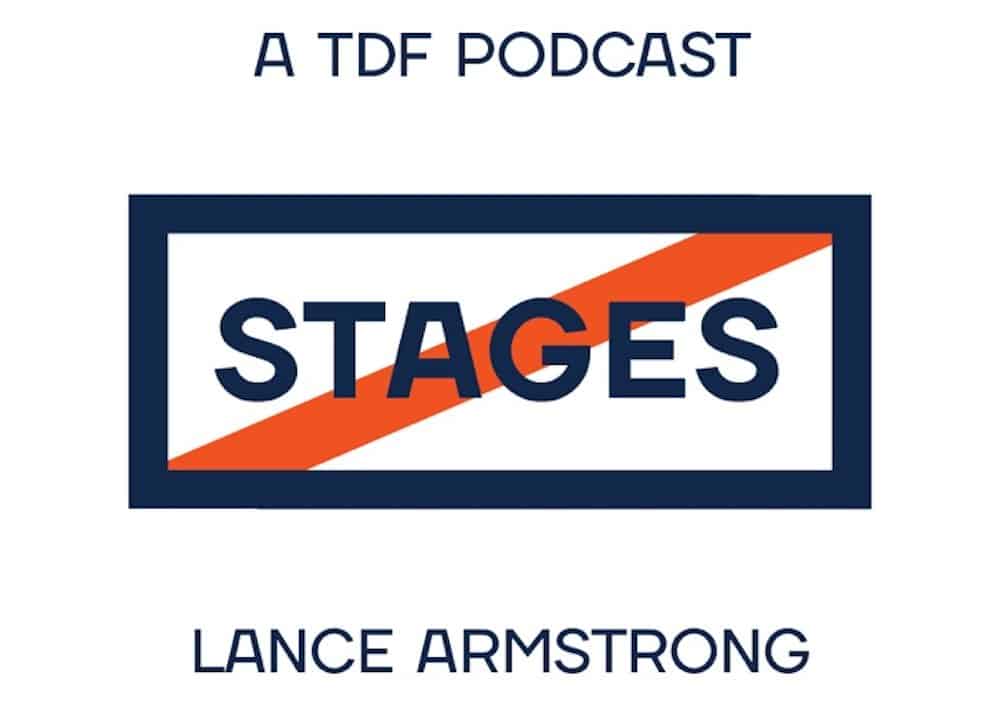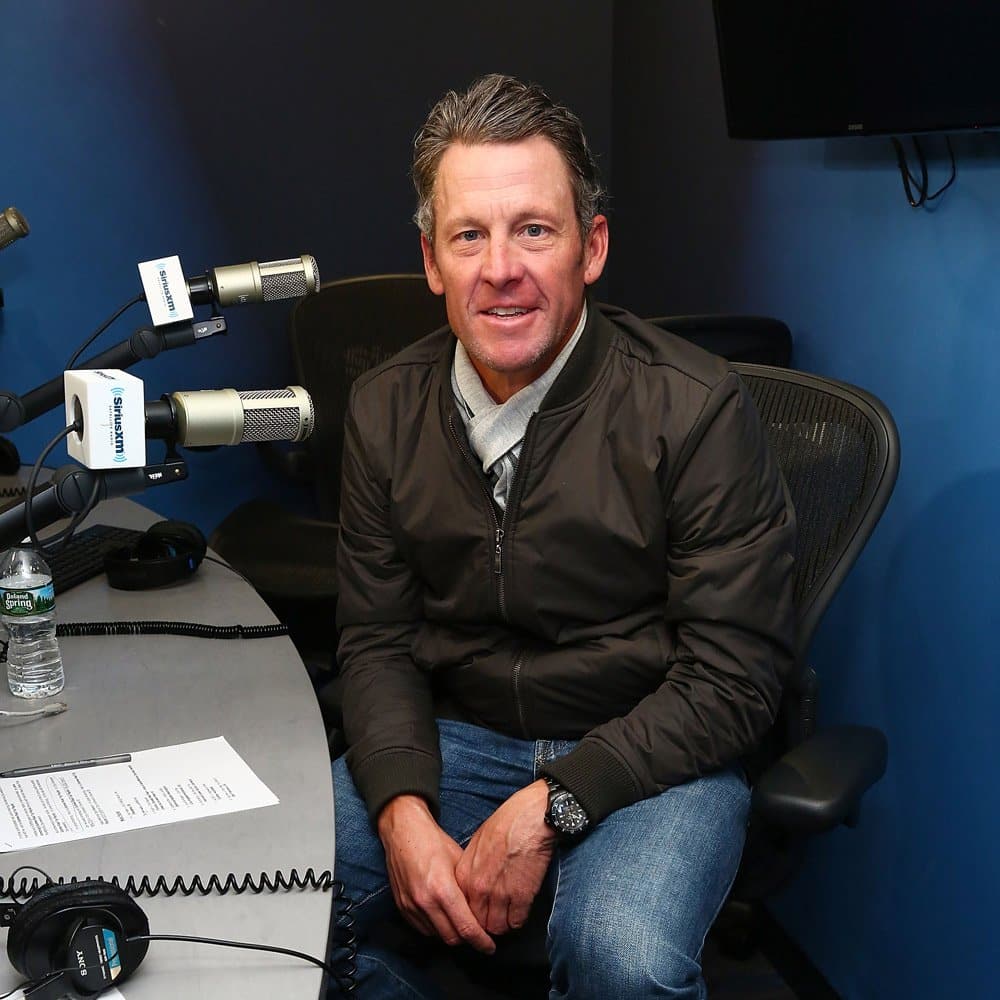Lance Armstrong’s Tour De France Podcast Is Going To Be Fiery
In an exclusive interview, Armstrong talks about falling back in love with the bike and what to expect from his new podcast—mainly, expect insightful and, at times, brutally frank commentary.
In an exclusive interview, Armstrong talks about falling back in love with the bike and what to expect from his new podcast—mainly, expect insightful and, at times, brutally frank commentary. – By Joe Lindsey

Lance Armstrong: Yeah, I started a little over a year ago and do one per week. I enjoy the conversations, but even more than that, I’ve enjoyed the research – doing the homework that I try to do because I don’t want to be a complete moron talking about someone else and their life. I study pretty hard.That’s interesting. You were the interviewee for decades. And you were famously short with people you felt were asking stupid questions. What’s it like being on the other side?
It’s definitely flipped. The key difference is that, per my style, I’m not trying to get at anyone. I let (guests) know The Forward is a safe place and that if there’s stuff they don’t want to talk about, we don’t talk about it. I don’t do gotcha questions; it’s just not that style of show. So it frees them up a lot and gives them a sense of comfort. That said, in 50 whatever episodes, no one has said, “Oh, I’m not talking about that.”But yeah, it’s different asking the questions. I don’t consider myself a journalist. We just have these conversations. But I do have a better appreciation for any journalist because I get nervous before some of these. Some of these people have complicated histories, and I don’t want to mess it up or I think, “I don’t know if I will do this justice.”
Yeah, it’s an obvious question; in fact, it’s like I’ve gone out of my way to avoid cycling on The Forward. It’s titled The Forward, not The Past. Having said that, my relationship with the sport and the industry and the bicycle—the device—has changed in the past year. We know what it used to be and what it was the last three or four years. That’s neither here nor there. I understand what and how everything went down, and that that’s led to hard feelings. On my part, I’ve chosen to set that aside and fall back in love with the sport. It could be going for a ride every day; it could be sitting down to watch the Tour. And I thought I could do a 20 to 30-minute wrap-up show every day.There’s no reason to do it, other than the natural reason that I’ve grown back in love, not so much with the sport, but primarily with the bike. That came accidentally. I got hurt running and had to back off, and I said, “I’ll start riding again because I don’t want to be 130kg,” and I started enjoying it again. Just getting out there and riding, maybe with friends, maybe alone, just two to six hours of suffering and working through some things.

Yeah, you’ve said that you didn’t ride much there for a few years.
I went straight into running. I’d ride if I had to, like if I had some benefit ride or someone to ride with, but I rode so rarely that when I did it was awkward. When you’re in the groove, you know how that feels; getting on the bike is seamless. It was a foreign object to me.
Do you think you’ll go back to running as you heal?
I don’t think my body will handle running long-term, in my 50s and 60s. And the break-in period of running, the first few weeks you get into it, are the worst. Your whole body hurts. I don’t see myself going back.
So you’re going to do a podcast every day about the Tour. What’s it going to be like? What will you talk about?
Well, I think it’ll be every day. There are days of the Tour that are unbelievably boring, and I won’t hesitate for one second to say, “That was totally fucking boring.” The thing about my situation is that I can say and do whatever I want. I get to be brutally honest about certain things that maybe NBC or you guys wouldn’t say. It’s not going to be a long show; anywhere from 20 to 30 minutes. Probably 75 to 80 percent of that time I’ll be talking about what we just watched, the results and strategy, and the final 20 per cent will be talking about what to expect the next day. I’ll talk about the stage, the profile, the corners, the weather, the tactics, the people. I have the race bible, so just being able to look at the last three Ks, on a day when it’s raining and you have (Tour promoter) ASO’s brilliance at putting the dumbest corner in the dumbest place. Days like that, if it’s raining? Buddy, hold all winning tickets. Anything can happen.
This is good; we’re getting a preview right here. Who do you think will win?
It’s a weird Tour course. I mean, Alejandro Valverde has never won a Tour, but if there’s a Tour he can win, this is it. My favorite, I think Richie Porte is the big favorite, and I’ll say that in my preview. But my dark horse is Valverde. This Tour isn’t that hard; the time trials are short, and there is a 10-second bonus on every finish line. You know he’s looking at that and saying, “There are 30 or 40 seconds right there.” [Editor’s note: Valverde was injured in Stage 1 crash and is out of the Tour.]
So you’re going to do some pretty tight analysis, but it also sounds like you won’t be shy about sharing your opinion.
Here’s an example: the final day at the (Critérium du) Dauphiné. Richie is stronger than anyone. The fact that he lost that bike race? You can’t. You just don’t lose it. You’re isolated, your team’s gone, the race is getting away from you. But you find friends, you figure it out, and you just do not lose that fucking bike race. If I was calling that race (on TV), I’d be questioning the (BMC team) director. Why are they not finding some natural alliances? Don’t pretend there aren’t ways to figure it out. You have to give and call in favours. I don’t know what goes on in the peloton now versus when I was racing, but you have to make a trade with some teams and say, “I’ll get you back.” It’s so political; there’s always a time someone needs something. People may not love that, but that’s the reality. I was shocked that he let it slip away. If that were to happen in the Tour, the kind of call I’d say is “I don’t understand it.”
You’ve mentioned your criticisms of the TV broadcast. Is this podcast a bit of an answer there? I’ll confess, the last many years I’ve watched with the volume on mute most of the time.
I have to be a little bit careful because I have friends there, and I’m close to Christian (Vande Velde, commentator). He’s a good buddy. And (Phil) Liggett and (Paul) Sherwen, they have been doing this a long, long time. But I don’t think I’m out on a limb to say that we’ll see a change in the next few years on the main commentary. And it’s no secret that these people I just mentioned, that the policy is that they’re not allowed to mention me. [NBC says it has no policy, formal or otherwise, against mentioning Armstrong’s name.] The viewers and the fans, if they’ve accepted or not accepted what went down, it happened. It’s disrespectful to the fans that they pretend that they can’t mention that era.
Speaking of, you were critical of ASO on Twitter as well, pointing out that they welcome French riders like Richard Virenque and Laurent Jalabert, who doped, but they won’t invite Jan Ullrich to the start, in his native Germany, on the 20th anniversary of his win.
“Fuck ASO” cannot sum it up any better. I’m serious. And I was surprised at the response to that tweet. The responses to my tweets can be… they can really, really vary, but I was surprised at a lot of people who said, “Yeah, this is stupid.” I’ve tweeted about it but, had I not, I’d have hit that with both barrels (on the podcast).
You’re not going to hold back, are you?
There’ll be no filter. But that doesn’t mean saying stupid things. There needs to be some thought put into it, and then you make the call. But there’s so much fodder. Look at last year’s Tour, with Chris Froome running up Mont Ventoux. You could write about that for a year. Stuff like that, for you guys and for me now, that’s gold.
Will it just be you, or do you plan to have guests?
Originally, this started as George (Hincapie) and I doing it together. But his schedule changed, and he can’t do it daily. And it’d be hard if it was just me every day. So I recruited a buddy of mine: a big morning DJ in Austin, JB Hager. He has lots of radio experience and rides quite a bit. I needed someone to help carry the show and ask some questions that the average Tour fan and listener would have. He takes the perspective of the fan, asking, “What happened here?” and that keeps the show rolling. But we will have guests, including George most of the last week. And we have the capability to do phone calls. So I don’t know how much calling we’ll do, but it could be cool if, say, you can get the stage winner on the way back to the hotel on the team bus.
A bit of an admission: this is a different sport than when I raced. I think we all know that the secrets are different. But it’s also different in that, like a month ago, I didn’t know that the Brioches la Boulangere team is now called Direct Energie. I realised that’s Jean-René Bernaudeau’s team, and it’s Thomas Voeckler and Sylvain Chavanel. But I have to get caught back up on who the players are—the sponsors and riders and directors. It’s interesting to dig back in and say, “Ah, this (Fabio) Aru kid, what’s his deal? What’s his style, is he tough?” All these guys I haven’t been following. So that’s been interesting.
Since you don’t plan to hold back, are you concerned about controversy?
Anything I do has controversy, but that’s OK. I’ve grown to accept that. But wait, just to be clear, how did you mean that, controversy?
That people would get mad that you’re around the sport and that they might feel you don’t have a right to weigh in and critique the race and riders.
Yeah, there’ll be plenty of that. I’m well aware that it exists, and I’ve grown to live with it. My view on that is not from three years ago. I understand that people have that position and maybe will forever. I don’t fight that. For me to move forward, I have to say, “I’m sorry, I understand, but I’m moving on.” That’s a little neutral, but I’d never take up an argument with anyone who feels that way. And people have every right not to listen.
READ MORE ON: international races Race News road Tour de France

